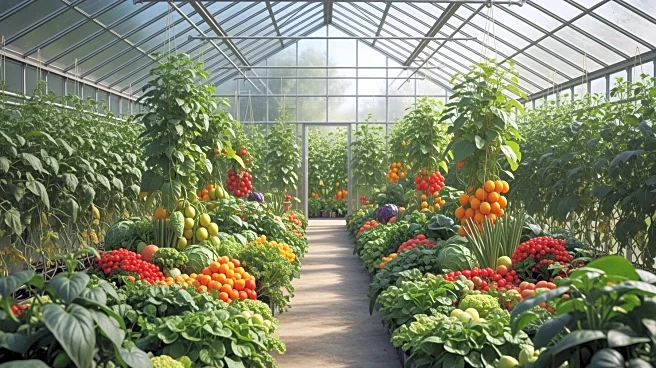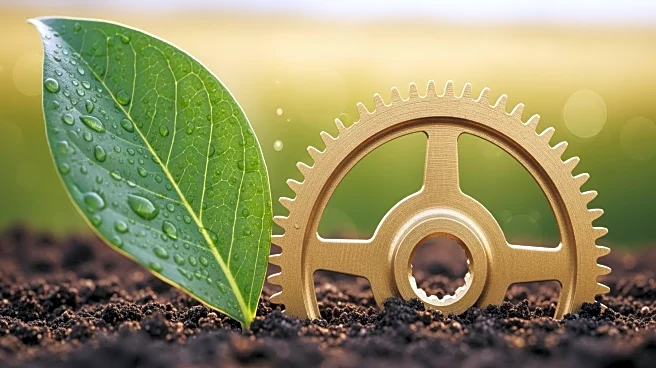What's Happening?
The global sustainable agriculture market is expected to grow at a compound annual growth rate (CAGR) of 10.30% from 2025 to 2032, driven by climate change adaptation needs and increasing consumer demand
for sustainably produced food. Key trends include the adoption of digital farming technologies, expansion of regenerative agriculture practices, and integration of circular economy principles. Government initiatives, such as the US Climate-Smart Commodities Program and the EU Soil Health Act, are supporting eco-friendly farming practices. Major companies like Bayer CropScience and Deere & Company are investing in sustainable solutions, including carbon programs and smart irrigation systems.
Why It's Important?
The growth of the sustainable agriculture market reflects a shift towards environmentally responsible farming practices, addressing critical issues like climate change and food security. The adoption of digital technologies and regenerative practices can enhance resource efficiency and reduce environmental impact. Government support through subsidies and policies is crucial in driving market expansion and encouraging sustainable practices. The involvement of major agricultural companies in sustainability initiatives indicates a broader industry commitment to environmental stewardship. This trend has significant implications for global food systems, potentially leading to more resilient and sustainable agricultural practices.
What's Next?
The sustainable agriculture market is likely to see continued innovation and investment in digital farming technologies and biological inputs. As consumer demand for sustainable food products grows, companies may increase their focus on traceability and transparency in food production. Government policies and subsidies will play a key role in shaping the market landscape, potentially influencing the adoption of sustainable practices across different regions. The expansion of carbon credit programs and precision agriculture solutions may further drive market growth and environmental benefits.
Beyond the Headlines
The rise of sustainable agriculture highlights the ethical and economic dimensions of food production, emphasizing the need for responsible resource management and environmental conservation. The integration of circular economy principles in farming operations can lead to long-term sustainability and reduced waste. The market's growth may also prompt discussions on the balance between technological innovation and traditional farming methods, as well as the role of corporate responsibility in promoting sustainable practices.








